Adessium is an endowed foundation in the Netherlands, established in 2005 by commodities trader Gerard van Vliet and his family. Today, it spends approximately €18 million annually on programmes including marine conservation and efforts to promote open and democratic societies.
It is one of the ‘dark horses’ of European philanthropy, avoiding attention and declining all requests to be interviewed. Gerard’s interview with Alliance magazine is his first for any publication.
Together with his son, Rogier van Vliet, and managing director, Rogier van der Weerd, he talked to Alliance editor, Charles Keidan, about how Adessium came into being and, a decade on, where this remarkable philanthropic journey has taken them.
I understand your business success was in asset management but what was the business?
GvV: My background started in cash commodity trading, in the grain and oil seeds sector. In 1987 I initiated a Commodity Trading Advisor company (CTA) which developed into quite a successful business. In 2002 we sold this company.
And that was the basis for the foundation?
GvV: When we decided as a family to sell, we realized that we would have a lot of extra money to manage and why would we want to do that when we already had more than enough? So it was a philosophical decision, and we thought ‘why don’t we use it – not for ourselves but to try to convert it into something positive for the community and the world in which we live?’.
RvV: It was your idea, it was your very strong belief at the time that it would be good to make sure that the money is being used for common good and basically we all agreed as a family that it was a great idea.
GvV: What we didn’t realize was how daring a decision it was, because actually, though you have a general idea, you start from scratch and you start without focus.
What was that general idea?
GvV: In the early stages, our ideas diverged. Rogier instinctively went for protecting nature. I am interested in that, too, but I also had an inclination towards social issues. I thought: we are living here in Holland, let’s look around the corner at what we can do here as well. So in the end, we became involved in a combination of social and environmental issues, working towards a ‘balanced society’.
Did running a very successful business together influence your thinking about how your philanthropic work would develop
RvV: ‘Keep your options open’ is a typical trader way of thinking and that’s what we did in the early stages while we were trying to figure out what the foundation was going to become.
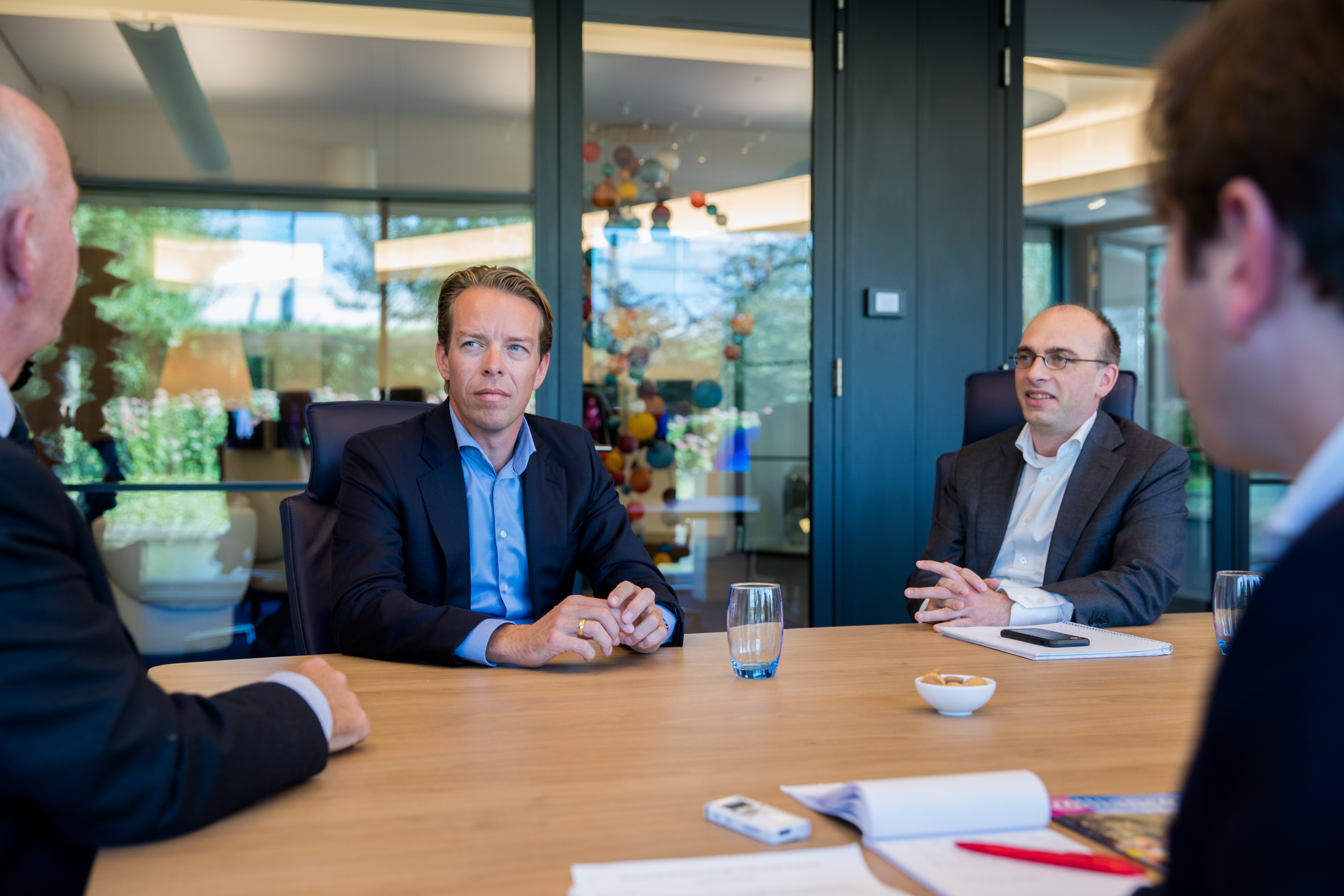
Rogier van Vliet and Rogier van der Weerd in conversation with Adessium’s founder Gerard van Vliet, and Alliance editor, Charles Keidan. Photo: Jesse Kraal.
It was difficult and good at the same time.
You need a focus to give you direction, but on the other hand keeping our options open gave us the tools to look outside the box and try to understand what the landscape looks like.
There are similarities between asset management and philanthropy.
It’s the fact that it’s an asset allocation business, an allocation of money, whether it’s asset managers or whether its beneficiaries.
In both cases it’s about spreading risks, but also doing due diligence on your partner, and making sure you understand their business and their identity. I made use of that experience in the asset management industry in building the foundation from scratch.
GvV: Rogier once said: ‘To give away money, costs money’. If you want to do it seriously, you have to do due diligence. You need to understand the substance behind well-intended initiatives and good stories.
‘It was never our intention or wish to be in the public eye; we wanted the cause and work we enabled to be at the forefront. However, as we developed the foundation and started funding bigger projects that were becoming very visible, like the ECSP, we found that being anonymous was not really possible.’
Many foundations bear the name of the family who have created them. But your foundation has a Latin origin – Adessium – to bring into being. How did that choice of name occur?
GvV: Especially in the first few years, we wanted to stay anonymous so it didn’t make sense to put our name on the foundation. One of our colleagues came up with the name. It is a conjugation of the Latin words ad-esse which means to give, to participate, and to help, so it felt like a good starting point.
So the name embodied something about how the foundation was going to be?
GvV: Yes, I think so.
Why did you want to remain anonymous and why has that changed?
RvV: It was never our intention or wish to be in the public eye; we wanted the cause and work we enabled to be at the forefront. However, as we developed the foundation and started funding bigger projects that were becoming very visible, like the ECSP (Erasmus Centre for Strategic Philanthropy), we found that being anonymous was not really possible.
GvV: Once you put information in the public domain you cannot undo it, so we have to be careful. We’ve had regular requests for interviews and we’ve always said no up to now. One of the reasons why the foundation is not named after our family is that apart from the important considerations Rogier mentions, our ego does not need it.
You’d rather focus on the work that your grantees can achieve?
GvV: Exactly. It’s important that we have the conviction that we are doing the right thing in a professional way. We do it with a specific focus and for specific objectives. But at the same time, I don’t think there’s anything wrong in people giving their own name to a foundation.
RvV: Especially if you have a public profile, it makes sense. We didn’t have a public profile and we didn’t want one, although maybe we are creating one through the years because of what Adessium has achieved.
Are you now willing to be more public, at least with Alliance’s readership of philanthropy practitioners, because you’re now more confident about your philanthropy?
GvV: In 2007, we hired professional staff, including Pieter Stemerding as the first managing director – that was a defining moment. At one meeting, Pieter said: ‘We need a strategic framework’. It wasn’t my favourite phrase at the time, but he was right. He helped us through the process of developing that framework.
It initially had four programme directions, which we have recently reduced to three, which have been fairly consistent since the framework developed.
How did the programmatic areas develop?
GvV: You have philosophical questions apart from practical questions. For example, in the very early days, we supported a project to train two assistance dogs to help blind people. In the end, we spent €60,000, and, for the same amount, we could have supported 200 kids in Africa.
It’s an allocation question. What do you want to optimize? Is it the number of people you support, is it the longevity, is it the impact of what you’re doing over a longer period of time?
And how did you decide those questions?
GvV: For me, the basic question is: what is philanthropy about? My answer is improving the quality of life, which is hard to mathematically ground. So helping two people with dogs might be as valuable as helping 200 kids in Africa.
In the end, it’s a matter of personal choice and what topics relate to you strongly as a philanthropist. That said, appreciation of the social impact of our grantmaking has become an important part of our approach.
The three broad areas you arrived at are people and nature, public interest, which includes the investigative journalism work, and social initiatives. How did you arrive at those three?
RvV: It’s crafting, crafting, crafting and of course a lot of discussions between us, the professional team and the outside world of experts and practitioners. We changed names many times, but the fascinating thing is while doing it, you figure out there are some common threads. They may not be strongly articulated at first, but they are there and become clearer as our thinking and practice matures.
‘I think we’ve found a way to accept each other’s values and find common interests between us.’
And they come from your values? And your interpretation of those values in the form of the programmes you’ve developed?
RvV: Yes. That’s basically how we got to this point today.
RvdW: I joined in 2009 when a more structured approach was starting to get defined. The values behind Adessium and the objectives we pursue – to safeguard a just society, this notion of public integrity, to support marginalized groups in our society – those things were already there in the early days. But also the approach to philanthropy, and the decision to be an engaged funder, interested in social change and in strengthening the philanthropic sector, were developed very early on.
Ten years on, what are you most proud of?
RvV: I’m most proud of us doing it together, as a family, with governing bodies and of course as a professional team. I think we’ve found a way to accept each other’s values and find common interests between us.
Has having professional staff helped or hindered in terms of giving you the ability to translate discussions into concrete plans?
RvV: It’s been instrumental. I think it was a way to create a middle man between father and son. It also allowed us to develop a professional point of view as a foundation, not only an emotional point of view.

Rogier van Vliet, chair (left) and Rogier van der Weerd, managing director. Photo: Annet Neijmeijer.
Rogier [van der Weerd], you’ve been with the foundation since 2009 and, for the last year, you’ve been managing director. You receive guidance from the family, but you’re tasked with translating that into philanthropic action. How have you found that process?
RvdW: I think the fact that it has been an evolution, and that there has been a deep and well informed internal debate about the direction we are taking, have been very valuable. I’m very proud that we’ve managed to get to a point where – although we are still relatively young – we are now an established and relevant player, making optimal responsible use of the independence and degrees of freedom you have as a foundation.
Two areas where you are relevant right now is your work on nature and the environment, which is suffering degradation, and your work on public interest journalism. How did your interest in those areas come about and what impact does Adessium hope to have?
RvV: To take the environment, I’ve always had an interest in wildlife and nature, but that was just a starting point. When our interest began to develop, we went on an exploratory path through established international NGOs like the World Wildlife Fund, but were also intrigued by innovative approaches to conservation such as African Parks.
Based on an article on overfishing, we started looking into that topic too. This became a broader theme about ocean governance, and then plastic pollution in oceans. It’s all a development. You start at one point and end up addressing other parts within the same area and aim for a portfolio of initiatives that can reinforce each other.
‘To me, what’s very important is the willingness to be curious and to be open to looking for systemic solutions. Often, these are high-risk, high-impact initiatives. ‘
Do you feel you are making progress?
RvV: We always take the humble view that although it’s a lot of money, the yearly budget is still small considering what you would really need to make big changes. But I think the smart thing to do is to try to understand the root cause of the issue and how we can change it.
You can clean up a beach for example, which is very visible, but maybe, say, waste management in some countries is really badly organized, or harmful use of plastics is not addressed by good policy – these are really the root causes of waste ending up in oceans.
So would you try then to influence governments and policies?
RvV: Yes, exactly, you need to get the right drivers for change. Sometimes it is governments, sometimes it is people and behaviour. You try to find the right organizations in the right position to press for change.
RvdW: To me, what’s very important is the willingness to be curious and to be open to looking for systemic solutions. Often, these are high-risk, high-impact initiatives. We have seen some tremendous successes over the past ten years, but we certainly have also supported initiatives that have failed. I think you have to accept that you can’t have a 100 per cent success rate. If you do, you may not be pushing hard enough for meaningful change.
Take the example of ocean conservation.
It became clear to us when we were researching ocean governance that the way international waters are governed is highly problematic, but it’s also extremely difficult to improve given the complexity of international conventions and the fragmented attention for oceans in the UN system.
An impulse was needed to create momentum for change. In collaboration with others – the Pew Charitable Trusts, Oak Foundation and others – we founded a Global Ocean Commission, as an independent body that could direct attention to the issue and suggest priority steps to be taken to improve the situation.
Years later, we can look back and say that this effort contributed to the fact that there now is a Sustainable Development Goal on the Ocean (SDG 14). And there are negotiations presently going on at the UN to make it possible to protect certain critical areas beyond national jurisdiction. I agree we need to be humble, and we need to acknowledge the strong effort of many other groups, but I think this joint and concerted effort made a real difference.
‘The key concept of the programme is to enable a fair, well-informed and multi-sided process to get to legitimate democratic decisions.’
GvV: An ongoing concern is, or should be, are we addressing the most important needs of the society we live in, or are we doing hobby projects?
It’s not cut in stone that what we are doing now we should be doing in ten years’ time. We don’t aspire to be an advocacy or campaigning group ourselves and prefer to take a constructive approach.
We do not want to associate ourselves with people throwing tomatoes and stones, but with people who analyse problems, find a root cause, and look at ways we could contribute to solving them.
RvdW: That goes straight to the core of the public interest programme. We don’t take political positions and push groups to advocate them. The key concept of the programme is to enable a fair, well-informed and multi-sided process to get to legitimate democratic decisions. And of course, it connects very logically with the notion of funding investigative journalism.
How did your investigative journalism work come about?
GvV: Very early on, in 2008, we saw the potential of the International Consortium of Investigative Journalists (ICIJ). We began to support it but we have no say about the content. A very important element of a free democratic society is that we are not misled with information. As continental Europeans, we have the feeling that the UK was misled on the question of Brexit, and it wasn’t a two-sided debate. But you cannot push the genie back in the bottle.
RvdW: I think this topic is also very defining of who we are as a foundation. It took quite some faith and commitment to fund ICIJ. The organization was underfunded at the time but had a huge potential. But such a potential you cannot expect to fulfil in one or two years.
We provided long-term funding – even through difficult phases in its development – and can do this because we do our due diligence, invest in trusting relationships and bring in external evaluation when relevant.
With iterations and cycles of ever stronger investigations, the dividends were paid in the form of the Panama and Paradise Papers – some of the largest global investigative reporting projects ever – and other major investigations.
Do you think that media scrutiny should also be applied to philanthropy because philanthropists are increasingly important players in public life?
RvV: What we are trying to achieve basically is greater public good. I think it is fine if that is challenged now and then, because if you become too big or institutionalized, there is always the possibility of misuse of power.
RvdW: I think it’s inevitable and I think it’s a good thing. We experience this also given that we’re a relatively influential player in funding civil society organizations in Brussels or media and journalism organizations. We’re sometimes asked: ‘why do you do that?’ There is a feeling that there must be a hidden agenda.
‘Sometimes I wonder about our focus. We are helping combat plastic pollution which is actually one of the most important problems of the world – shouldn’t we focus on it entirely?’
And it’s quite interesting that it can be hard to get the message across that the intention behind it is to strengthen due democratic process, without pushing particular private or personal interests. But you need to be crystal clear about this, and translate that principle into all aspects of how you operate. For instance, we require journalism organizations to protect their editorial independence contractually. We select groups based on the highest standards of journalistic integrity and method, etc.
GvV: In the end, everything we support is without self-interest and, for me, that is what philanthropy should be.
Not all philanthropists may be acting on your broad notion of the public good, they may have a more specific view of the world.
RvdW: That’s why I think it’s a good thing for journalism to try to make clear the different forms and intentions behind philanthropy.
You’ve laid the foundations of very significant philanthropy in ocean conservation and public interest journalism, you’ve become more visible, you’ve got more clarity about what you’re doing – where does that take you in the next ten years?
GvV: It’s like in investments – looking ahead one month is difficult, but ten years is impossible. But my wish is that we stay professional and relevant. Some of what we consider relevant today may also be relevant in ten years’ time, but there will be other things and there should always be room for doubt.
Sometimes I wonder about our focus. We are helping combat plastic pollution which is actually one of the most important problems of the world – shouldn’t we focus on it entirely? How can we be most effective, most relevant and really translate the grants we are giving into a benefit for the world?
Do you also think about that not just in terms of where you give your money but how much you give? Do you think about spending down? Or would that prevent you from being able to deal with long-term problems?
RvV: On the one hand, I totally agree that spending down is a very interesting way of putting your money into society, but then, it’s been so difficult for us over the last ten to 15 years to create a position where we know who we are and what we are trying to do, it seems a shame to let that die and if you are able to be relevant in the years to come, then that is a great achievement.
GvV: Maybe the needs that people have now are more important than the needs they will have in the future. It’s too philosophical to come to a conclusion.
Some see it as a question of power – you have been able to accumulate wealth and power and philanthropy is about redistributing that wealth and power to the society that enabled it in the first place?
GvV: The challenge is to keep all the interests aligned and not create a little kingdom through the foundation. Checks and balances remain important, because in the end an endowment is to be protected, invested and spent as wisely as possible. You have to build into the structure the right incentives but you are dependent on those who follow you to remain faithful to the idea.
‘It feels good and what you need in life, to continue what you’re doing, is confirmation now and then that what you’re doing feels good.’
RvdW: I don’t think an institution should ever be kept going for its own sake. But what has been created is a vehicle that has unique characteristics, one of which is independence. This is critical because it allows us to take risks, to go against the current, and that’s going to be invaluable indefinitely, to me. I’ve no idea where we’ll be in ten years, but I very much agree with your answer: we need to avoid the trap of complacency, continue to push the envelope and ensure we remain relevant.
GvV: For a family involved in philanthropy, there is also the emotion attached to giving. We have purposely kept that at some distance, but it’s satisfying if you read from time to time what the team is doing, and you can say ‘we initiated that’ or ‘’we concluded that’, and see progress here and there, even though it takes a while sometimes to see it.
It feels good and what you need in life, to continue what you’re doing, is confirmation now and then that what you’re doing feels good.

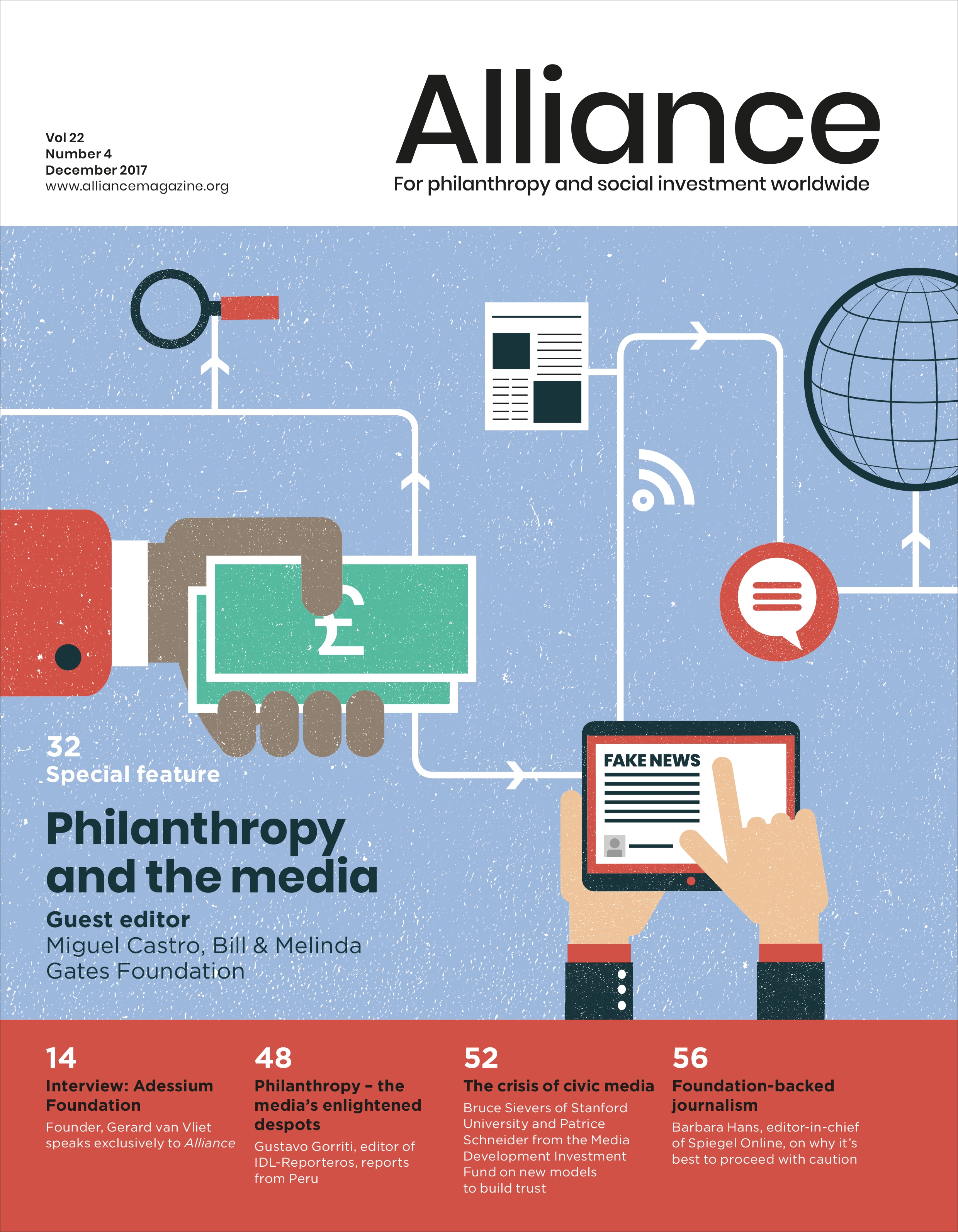

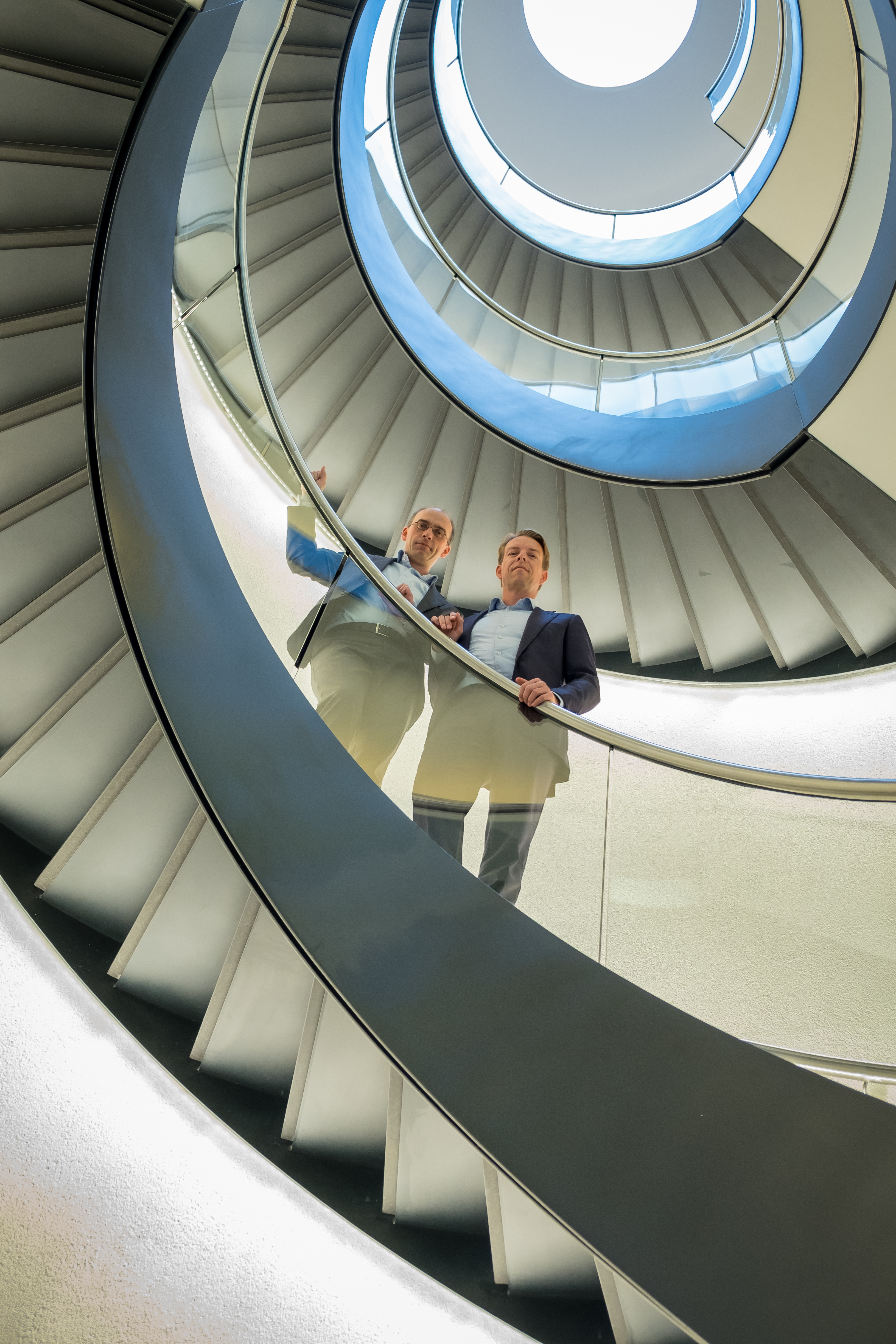
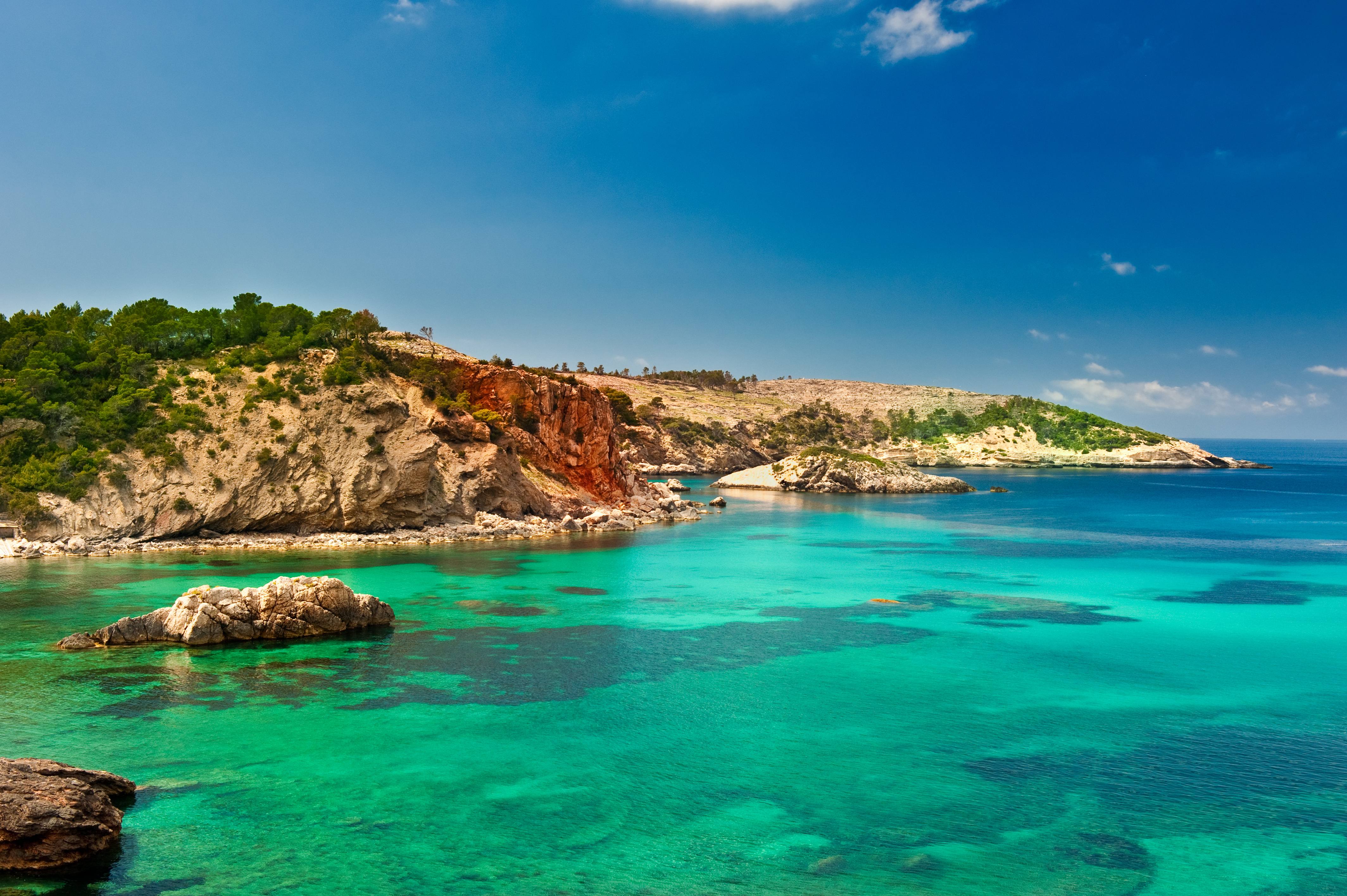
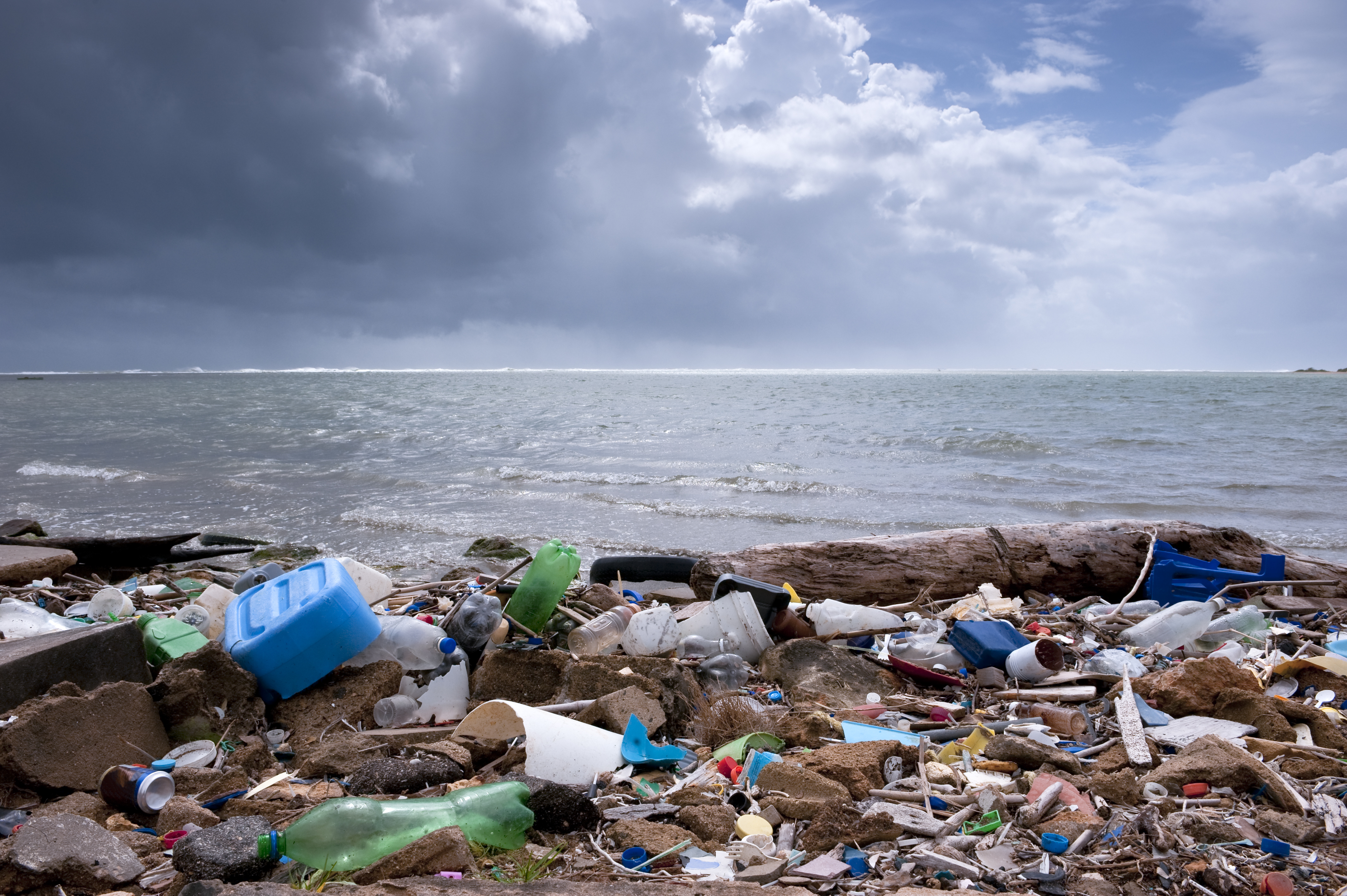
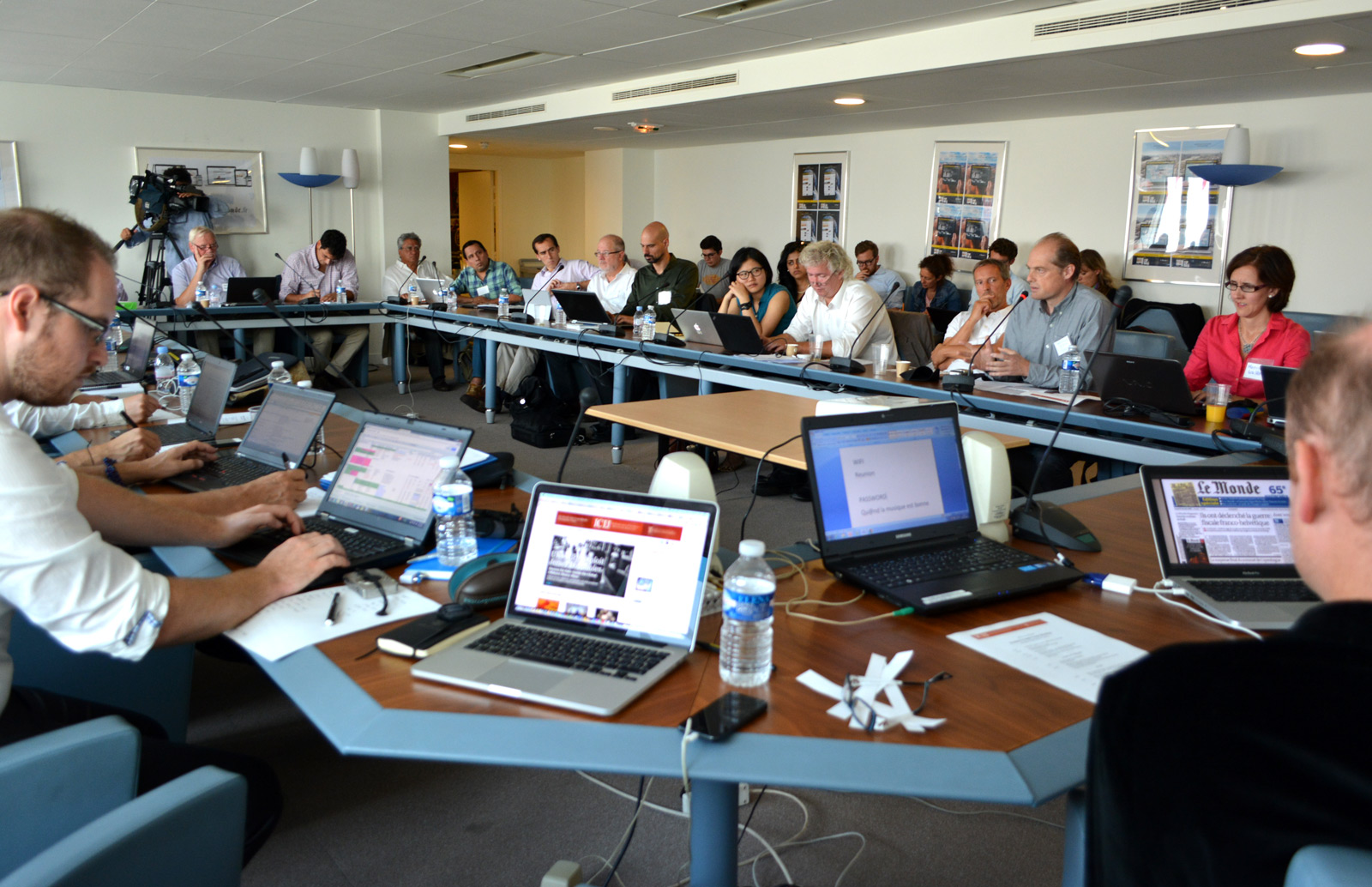
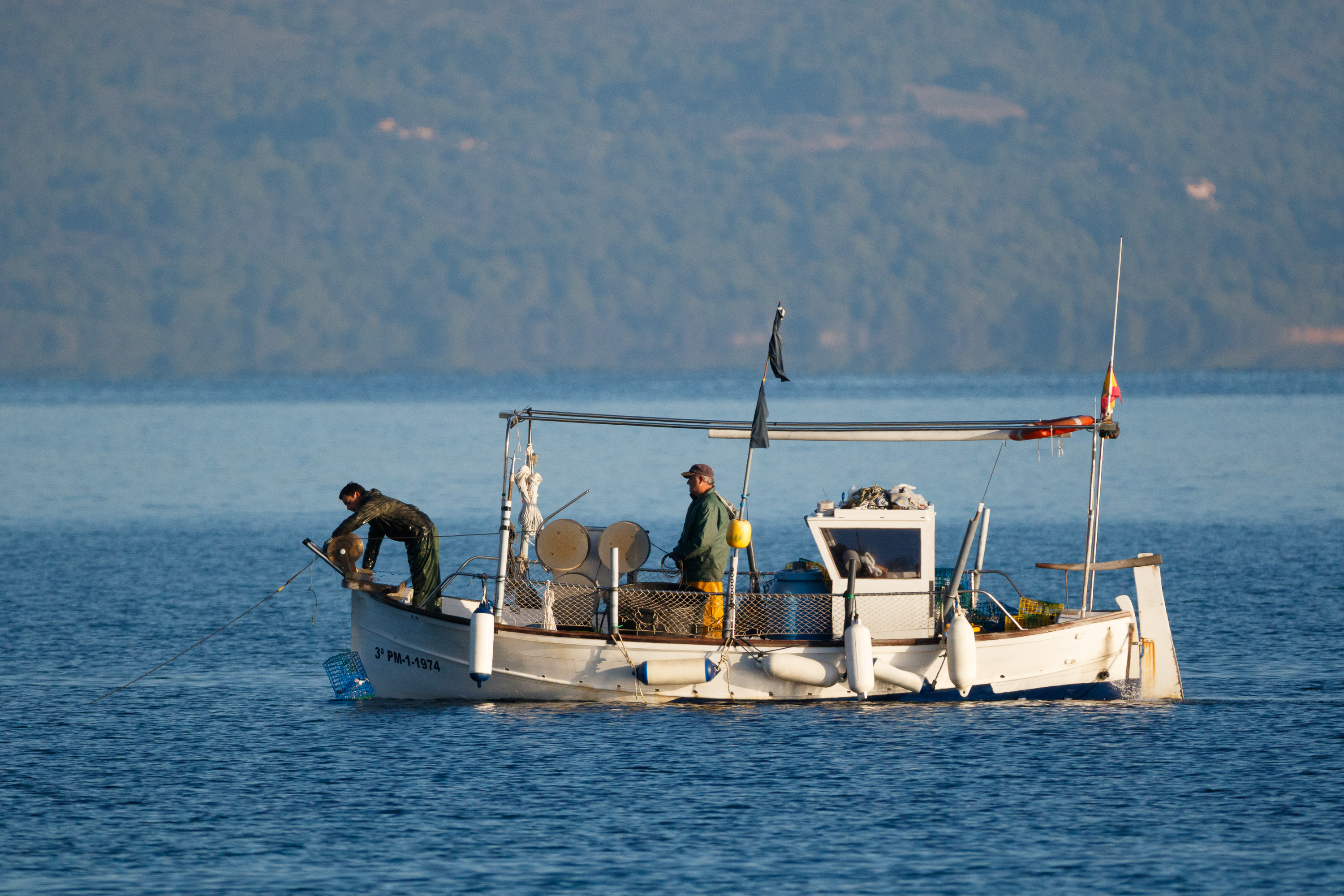


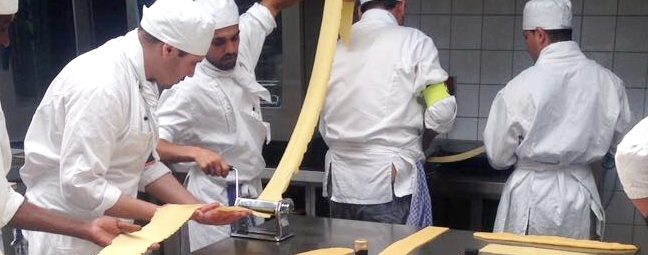

Comments (0)